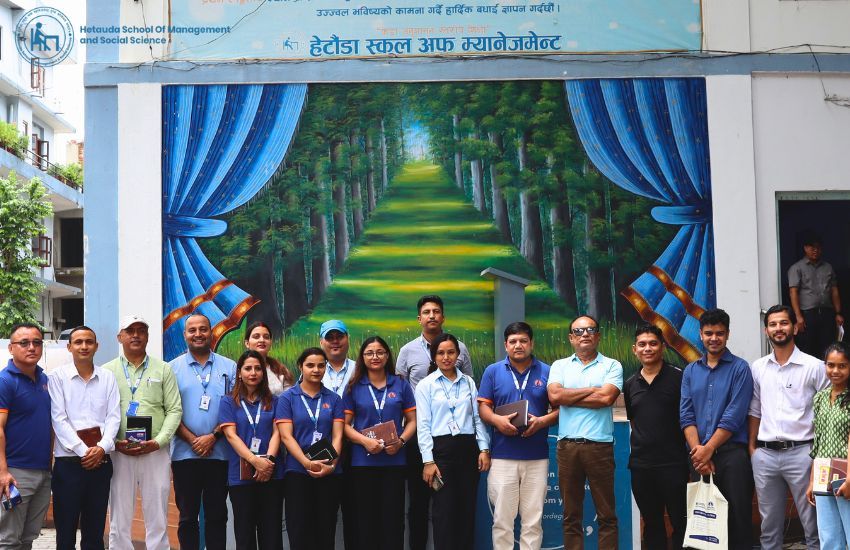Boston International College Visits HSMSS

Boston International College Visits Hetauda School of Management and Social Sciences for QAA: A Paradigm of Learning and Knowledge Exchange
In the ever-evolving landscape of higher education, institutions recognize the significance of learning from one another. A prime example of this reciprocal learning process was witnessed when Boston International College (BIC) visited Hetauda School of Management and Social Sciences (HSMSS) for Quality Assurance and Accreditation (QAA). This visit not only emphasized the importance of maintaining educational standards but also heralded an epoch of collaborative knowledge exchange between faculty members of both institutions.
Quality Assurance and Accreditation (QAA): A Shared Vision
For any educational institution, maintaining and enhancing the quality of education is paramount. The visit by BIC to HSMSS for QAA underscored the shared commitment both institutions have towards excellence. QAA is not just a procedure to ensure that educational standards are met; it is a manifestation of an institution's dedication to continuous improvement, to introspection, and to being receptive to external insights.
The process of QAA involves a comprehensive review of educational programs, curriculum, faculty qualifications, resources, and overall student experience. Through this visit, BIC played a pivotal role in aiding HSMSS to identify its strengths and areas of improvement. In doing so, they acted as critical friends—offering a perspective that is external, yet well-informed.
The Power of Collaborative Learning
Beyond the formal procedures of the QAA, what truly made this visit remarkable was the organic exchange of ideas, teaching methodologies, and research insights between the faculty members of BIC and HSMSS. Both institutions, although distinct in their identities, found common ground in their shared passion for education. The developement and the core learner's centricdevelopemnt through student involvement also had been developed through the idea of routine planning and knowledge sharing processs.
Building Bridges: The Way Forward
Such visits have a dual impact. Firstly, they drive institutions towards betterment by ensuring adherence to a certain benchmark of quality. Secondly, they act as catalysts for fostering inter-institutional relationships. By opening channels of communication and facilitating knowledge sharing, they lay the foundation for future collaborations, be it in research, faculty exchange programs, or joint academic ventures.
Date: 2023-08-16